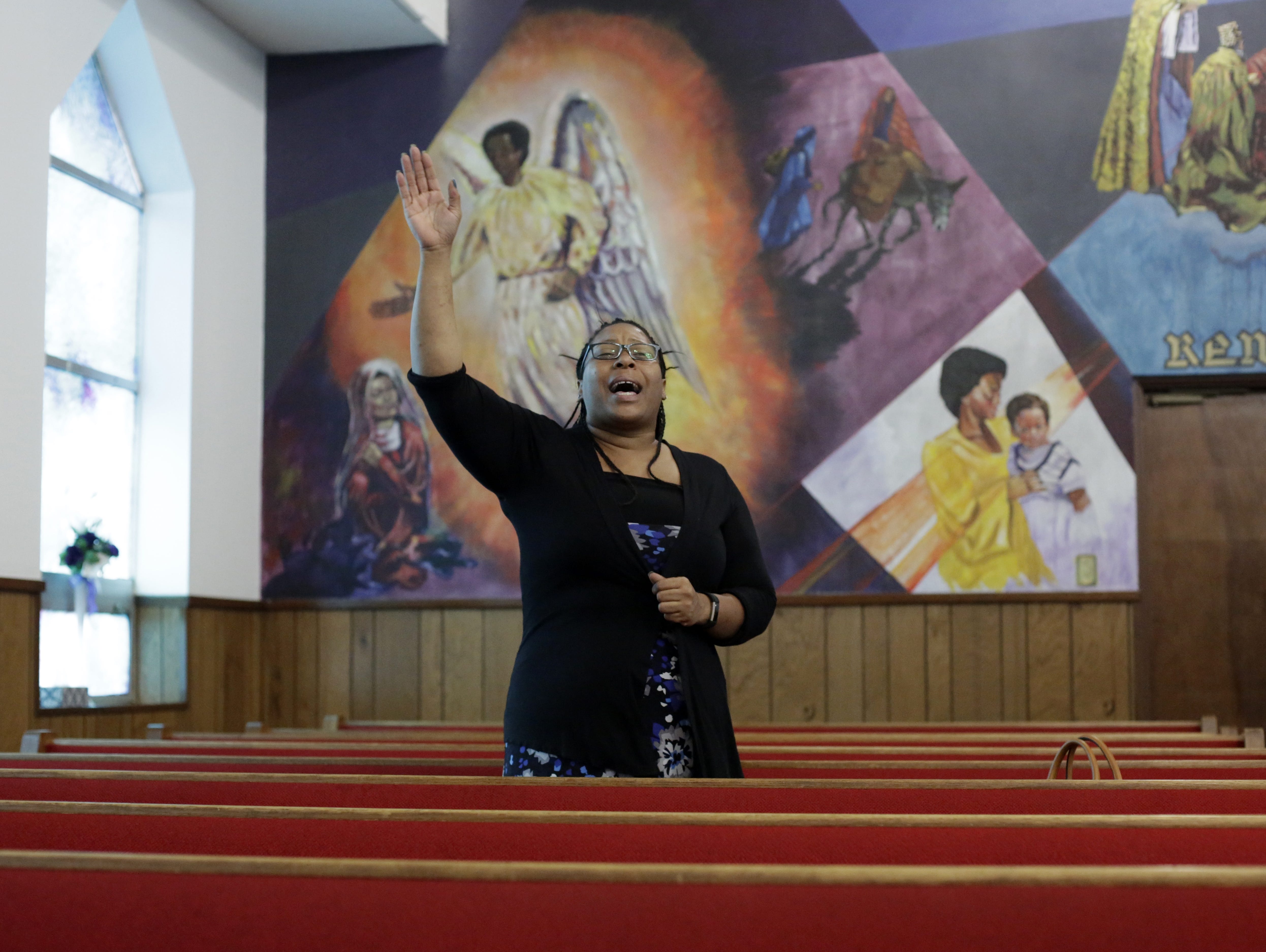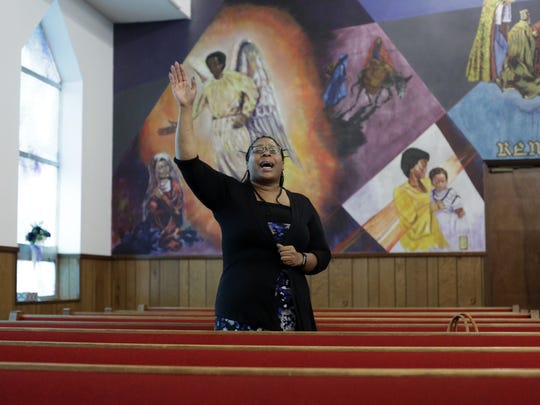Pentecost Week: 03-09 June 2019

Pentecost is the day that the Holy Spirit came in a very special, dramatic, and forceful manner to give birth to the Christian Church. Sunday, May 20, is Pentecost Sunday.
It all began after Jesus’ resurrection when he presented himself alive to his disciples, spending several days with them speaking about the kingdom of God.
Then Jesus said to them, “You will receive power when the Holy Spirit has come upon you, and you will be my witnesses in Jerusalem, in all of Judea and Samaria, and to the end of the earth.” (Acts 1:8). After Jesus’ ascension the disciples, with other followers of Jesus, returned to Jerusalem. They were waiting for Jesus’ promise to be fulfilled. The Holy Spirit is coming.
When the day of Pentecost arrived they were altogether in one place. Suddenly, a sound from heaven, like the rushing of a fierce wind filled the house where they were sitting. Individual flames of fire alighted on each of them. They were all filled with the Holy Spirit and began speaking in other languages. They quickly shifted from the upper room to the streets outside.
They were overwhelmed by the huge crowd of devout Jews from “every nation under heaven” gathering to celebrate the Feast of Tabernacles. Never was there a more international crowd as those days in Jerusalem at the time of Pentecost. This diverse crowd of different languages and cultures from some fifteen different countries were bewildered and amazed saying, “how is it possible that each one of us can hear these Galileans speaking of the ‘mighty works of God’ in our own language?”
Then a renewed Peter stands up before this vast crowd to deliver the first ever Christian sermon. As he is speaking the crowd cries out to Peter and the other apostles, “Brothers, what should we do?” Peter replied without any hesitation, “Change your hearts and lives and be baptized in the name of Jesus Christ for the forgiveness of your sins. Then you will receive the gift of the Holy Spirit.”
The words of Peter were clear and went to the heart. That day about three thousand took Peter at his word, were baptized and signed up. They committed themselves to the teachings of the apostles, having life together, common meals, and prayer as the Holy Spirit became the prominent reality in the life of the young church.
A new wind was set loose upon the earth with a fresh breath of hope and empowerment. They dreamed for the Day when God would break into history, now that Day has arrived. The church was born amid the wind and fire of Pentecost.
This was a miraculous moment at Pentecost. This immense crowd was becoming a safe place for the diversity of race, culture and language, in the midst of a hostile, divided world. N.T. Wright points out, “The communality of food and possessions is set forth as a concrete testimony that something substantial has happened to these people.”
From this moment on the Holy Spirit became a dominate reality in the life of the young church.
There are certain patterns that have come out of the experience of Pentecost in Acts 2, and we need to discover what these patterns are:
1. The first gift of the Holy Spirit is the gift of tongues. This gift caused this vast, diverse crowd to cry out to one another, “How is it possible that we can hear them speaking in our native language?” The gift of tongues made it possible for Peter’s powerful proclamation to be understood by all. The Spirit has been set loose upon the earth with a fresh breath of hope and empowerment for many.
The setting in which the Spirit burst upon the scene and the ways in which the Spirit makes its presence known through multiple languages, reveals that the good news does not belong to one kind of people. No single culture or mode of expression can fully define the gospel. The church’s center is Christ.
2. The Holy Spirit creates a unified, diverse community. To whom was the Holy Spirit given on the Day of Pentecost? The Spirit was given to a fellowship, to a community that was waiting for the Spirit’s coming. The community was following Jesus’ instructions, that they pray for the coming of the Spirit who would bring to them power and teach them all things. What the Holy Spirit created that day was not a creed, or a book, nor a theology, but a dynamic—diverse community known in the New Testament as “The Way.” The presence of the Holy Spirit comes among them to create community. The Spirit promotes unity by preserving diversity, producing a community of growth, excitement and creativity.
There are varieties of gifts but the same Spirit; and there are different ministries but the same Lord; there are different activities, but it is the same God who produces all of them in everyone.(1 Cor. 12:4-6).
Will Willimon observes, “What we discover at Pentecost is a dynamic, diverse community where all of the activities of teaching , fellowship, sharing, breaking of bread, and praying created a well-rounded picture of the church. They had the marks of an authentic embodiment of the Spirit in the community’s life.” The apostles displayed a new strength that entered their hearts, becoming a driving force in their lives. These early followers of Christ provide inspiration for today’s congregations that are seeking to serve communities of diversity in race, and culture.
3. Holy Spirit leads the Church into the future. How? By speaking a language that brings all things into harmony with God and with each other. These people from different cultures, races and languages are united in God’s Spirit in hospitality, worship and evangelism, knowing that “everyone who calls upon the name of the Lord will be saved.”(2:21). This Pentecostal narrative in Acts 1-2 provides for us a crucial guidance for today’s churches in these divisive days. The distinguished church historian, Justo Gonzalez writes, “Congregations today that commit themselves as churches of multiethnic identity, hospitality, and preach the gospel, will always attract attention.”
4. Acts 2;44-47 defines the church’s ministry: “All the believers were united and shared everything. They would sell pieces of property and possessions and distributed the proceeds to everyone who needed them. Every day they met together in the temple and ate in their homes. They shared food with gladness and simplicity. They praised God and demonstrated God’s goodness to everyone. The Lord added daily to the community those who were being saved.” All of this is the result of their baptismal commitment and their love for Christ and his Church. The enduring results of Pentecost brings all kinds of people into a liberating coexistence with Christ. The hymn reminds us, “That in Christ there no east or west, in him no south or north; but one great fellowship of love throughout the whole wide earth.”
5. A summation: The Church in Acts in the first century provides us with both hope and judgment. Hope in what the church could be. Judgment in what we have failed to be. Charles Wesley writes, “Come Holy Spirit our heart’s desire, ignite in us a celestial fire.”

